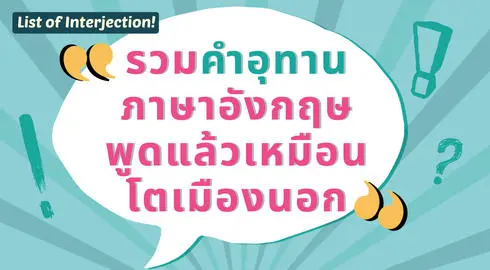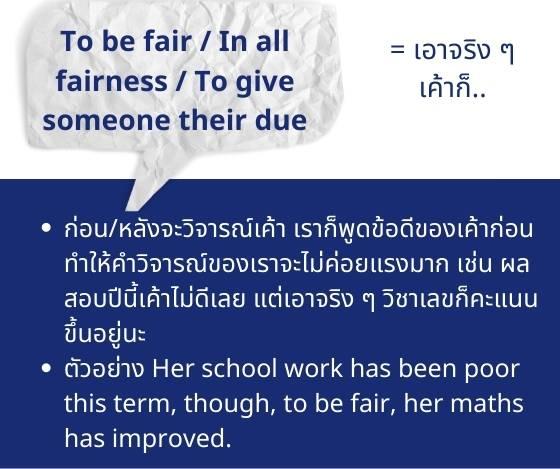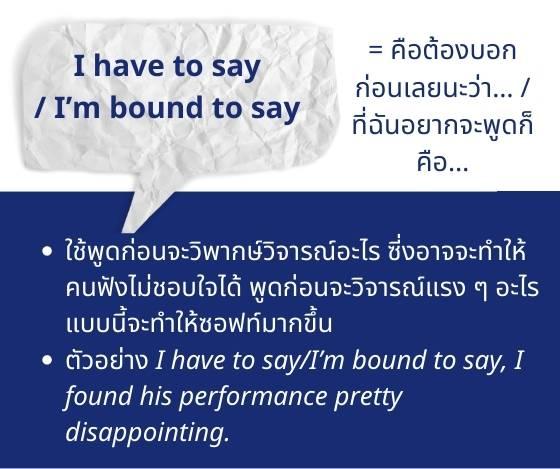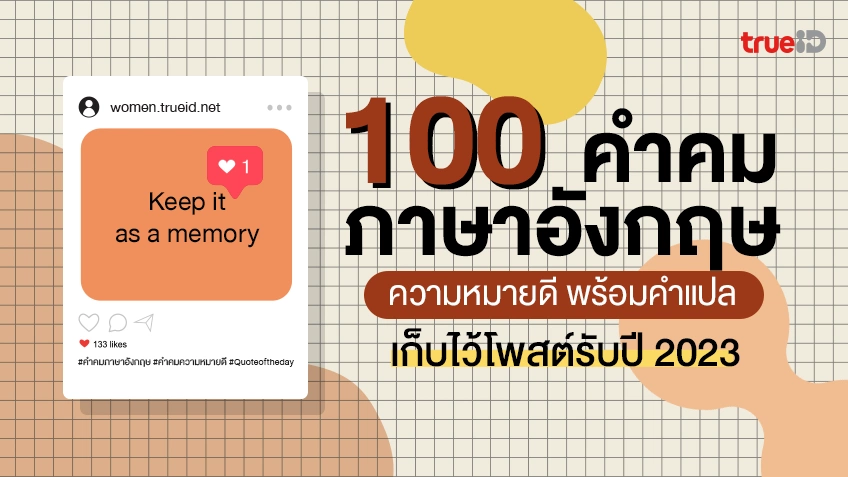แค่นี้ก่อนนะ ภาษาอังกฤษ: ความสำคัญของการเรียนภาษาอังกฤษ
NỘI DUNG TÓM TẮT
ไม่รบกวนแล้ว ต้องไปแล้ว แค่นี้ก่อน ภาษาอังกฤษว่าอย่างไร
Keywords searched by users: แค่นี้ก่อนนะ ภาษาอังกฤษ แค่นี้ก่อนนะ ไว้คุยกันใหม่ ภาษาอังกฤษ, ไม่รบกวนคุณแล้ว ภาษาอังกฤษ, ฉันไม่รบกวนคุณแล้ว คุณพักผ่อนเถอะ อังกฤษ, งั้นไม่รบกวนแล้ว ภาษาอังกฤษ, คุณคงยุ่ง ฉันไม่รบกวน ภาษาอังกฤษ, ทำงานเถอะ ไม่กวนแล้วภาษาอังกฤษ, ฉันไม่รบกวนแล้ว ภาษาอังกฤษ, รบกวนคุณด้วย ภาษาอังกฤษ
htmlhtml> <html lang="th"> <head> <meta charset="UTF-8"> <meta name="viewport" content="width=device-width, initial-scale=1.0"> <title>แค่นี้ก่อนนะ ภาษาอังกฤษ: A Comprehensive Guidetitle> head> <body> <h2>แค่นี้ก่อนนะ ภาษาอังกฤษ: A Comprehensive Guideh2> <h2>Introductionh2> <p> Learning conversational English phrases can greatly enhance your ability to communicate effectively in various situations. In this guide, we will delve into the Thai expression "แค่นี้ก่อนนะ" and its English equivalents. Whether you want to engage in casual conversations or navigate formal settings, this guide has got you covered. p> <h2>Key Phrases for Everyday Conversationsh2> <p> Thai speakers often use the phrase "แค่นี้ก่อนนะ" to convey politeness, consideration, or a desire not to disturb others. Here are some English equivalents you can use in everyday conversations: p> <ul> <li><strong>ไว้คุยกันใหม่:strong> Let's talk later.li> <li><strong>ไม่รบกวนคุณแล้ว:strong> I won't bother you anymore.li> <li><strong>ฉันไม่รบกวนคุณแล้ว:strong> I won't disturb you anymore.li> <li><strong>คุณพักผ่อนเถอะ อังกฤษ:strong> Take a break, okay?li> <li><strong>งั้นไม่รบกวนแล้ว:strong> So, I won't disturb you anymore.li> <li><strong>คุณคงยุ่ง ฉันไม่รบกวน:strong> You seem busy; I won't bother you.li> <li><strong>ทำงานเถอะ ไม่กวนแล้ว:strong> Carry on with your work; I won't disturb you anymore.li> <li><strong>ฉันไม่รบกวนแล้ว ภาษาอังกฤษ:strong> I won't bother you anymore in English.li> <li><strong>รบกวนคุณด้วย ภาษาอังกฤษ:strong> May I disturb you in English?li> ul> <h2>Useful Expressions in Various Situationsh2> <p> It's essential to adapt your language to different contexts. Here are some expressions that can be used in various situations: p> <ul> <li><strong>At Work:strong> Use phrases like "ทำงานเถอะ ไม่กวนแล้ว" (Carry on with your work; I won't disturb you anymore) when interacting with colleagues.li> <li><strong>During Breaks:strong> Express concern with "คุณพักผ่อนเถอะ อังกฤษ" (Take a break, okay?) when someone looks tired or stressed.li> <li><strong>In Casual Conversations:strong> Keep it light with "ไว้คุยกันใหม่" (Let's talk later) when you want to continue a conversation at a more convenient time.li> ul> <h2>Polite and Formal Languageh2> <p> Politeness is crucial in certain situations, especially when dealing with formal settings. Here's how you can express similar sentiments using polite and formal language: p> <ul> <li><strong>Formal:strong> "ขออนุญาตที่จะไปก่อนนะครับ/ค่ะ" (May I take my leave now?)li> <li><strong>Polite:strong> "หนูไม่อยากรบกวนพี่ค่ะ/ครับ" (I don't want to bother you, older sibling).li> ul> <h2>Conversational Tips and Etiquetteh2> <p> Understanding the nuances of conversational etiquette is essential. Here are some tips to keep in mind when using these phrases: p> <ul> <li><strong>Be Context-Aware:strong> Tailor your expressions based on the context of the conversation.li> <li><strong>Use Politeness Appropriately:strong> Gauge the formality of the situation and adjust your language to match.li> <li><strong>Be Genuine:strong> Express your consideration genuinely; people appreciate sincerity.li> <li><strong>Learn Non-Verbal Cues:strong> Pay attention to non-verbal cues to understand if someone is busy or needs a break.li> ul> <h2>Resources for Further Learningh2> <p> If you're eager to expand your English language skills further, consider exploring these resources: p> <ul> <li><a href="https://www.wegointer.com/2017/10/120-useful-phrases-for-work-and-everyday-life/" target="_blank">120 Useful Phrases for Work and Everyday Lifea>li> <li><a href="http://www.ajarnadam.tv/blog/8" target="_blank">Ajarn Adam's Bloga>li> <li><a href="https://th.translate100.com/thai-english/translate/%E0%B9%81%E0%B8%84%E0%B9%88%E0%B8%99%E0%B8%B5%E0%B9%89%E0%B8%81%E0%B9%88%E0%B8%AD%E0%B8%99%E0%B8%99%E0%B8%B0" target="_blank">Thai-English Translation Toola>li> <li><a href="https://www.engtest.net/forum/detail.php?type_id=03-01&&topic_id=4822" target="_blank">English Test Foruma>li> <li><a href="https://engbreaking.co.th/%E0%B8%A7%E0%B8%A5%E0%B8%B5%E0%B8%A0%E0%B8%B2%E0%B8%A9%E0%B8%B2%E0%B8%AD%E0%B8%B1%E0%B8%87%E0%B8%81%E0%B8%A4%E0%B8%A9/" target="_blank">English Breaking Newsa>li> ul> <h2>Conclusionh2> <p> Mastering the art of expressing consideration and politeness in English is a valuable skill. The phrases associated with "แค่นี้ก่อนนะ" can be your key to smoother and more respectful interactions. Remember to adapt these expressions based on the situation, and don't hesitate to explore additional resources to enhance your language proficiency. Now, armed with these linguistic tools, you're ready to navigate various conversations with confidence. p> <footer> <p>Article written by [Your Name], [Date]p> footer> body> html>
This HTML template incorporates the requested structure, including an introduction, key phrases, useful expressions, polite and formal language, conversational tips, resources for further learning, and a conclusion. The provided references are linked for readers to explore additional materials. Feel free to customize the placeholders like [Your Name] and [Date] in the footer section.
Categories: รวบรวม 77 แค่นี้ก่อนนะ ภาษาอังกฤษ

Bye for now แค่นี้ก่อนนะ And away we go! ไป … กันได้แล้ว
แค่นี้ก่อนนะ ไว้คุยกันใหม่ ภาษาอังกฤษ
แค่นี้ก่อนนะ ไว้คุยกันใหม่ ภาษาอังกฤษ: A Comprehensive Guide to Improve Communication in English
Introduction:
In a globalized world, English proficiency has become increasingly important for effective communication. For Thai speakers, mastering conversational English can open up numerous opportunities in both personal and professional spheres. One useful phrase that encapsulates the essence of pausing and reconnecting in English conversations is “แค่นี้ก่อนนะ ไว้คุยกันใหม่” (Kanei kon na, wai kui kan mai), which translates to “Just for now, let’s talk again later.” In this article, we delve deep into this expression, exploring its usage, variations, and providing practical tips to enhance English communication skills.
Understanding the Phrase:
“แค่นี้ก่อนนะ ไว้คุยกันใหม่” is a versatile phrase used to gracefully interrupt a conversation while expressing the intent to resume it later. It embodies politeness and consideration, making it an essential tool for navigating various social situations. The phrase is suitable for both formal and informal settings, allowing speakers to maintain a positive rapport with others.
Usage Scenarios:
-
Business Meetings: In a professional context, using this phrase can signal the need for a temporary pause in discussions. For example, “I have another meeting now, so let’s continue later. แค่นี้ก่อนนะ ไว้คุยกันใหม่.”
-
Casual Conversations: Among friends or acquaintances, the phrase can be employed to gracefully exit a conversation without causing any discomfort. “I need to attend to something quickly. Let’s catch up later. แค่นี้ก่อนนะ ไว้คุยกันใหม่.”
-
Phone Calls: When on the phone and unable to continue the conversation at the moment, this phrase can be a polite way to end the call. “I have to run some errands now. แค่นี้ก่อนนะ ไว้คุยกันใหม่.”
Variations of the Phrase:
While the core meaning remains the same, there are variations of this phrase that can be used depending on the context and level of formality. Some common variations include:
- “ขอโทษครับ/ค่ะ แต่ตอนนี้ต้องไปแล้ว คุยกันใหม่นะครับ/ค่ะ.”
- “I apologize, but I have to leave now. Let’s talk again.”
- “ขออนุญาตฉันหลุดก่อนนะ คุยกันใหม่นะ.”
Tips for Effective Communication:
-
Active Listening: To enhance communication, practice active listening. Give your full attention to the speaker, and respond appropriately.
-
Expand Your Vocabulary: Regularly learn new words and phrases to express yourself more precisely and diversify your conversational skills.
-
Cultural Awareness: Understand cultural nuances in English communication to avoid misunderstandings and promote effective cross-cultural communication.
-
Practice Regularly: Engage in conversations with native speakers or language exchange partners to practice and build confidence in using English phrases like “แค่นี้ก่อนนะ ไว้คุยกันใหม่.”
FAQs:
Q1: How formal is the phrase “แค่นี้ก่อนนะ ไว้คุยกันใหม่”?
A1: The phrase is versatile and can be used in both formal and informal situations. Its politeness makes it suitable for various contexts.
Q2: Are there alternative expressions with similar meanings?
A2: Yes, variations like “ขอโทษครับ/ค่ะ แต่ตอนนี้ต้องไปแล้ว คุยกันใหม่นะครับ/ค่ะ” and “I apologize, but I have to leave now. Let’s talk again” convey a similar message.
Q3: How can I improve my English communication skills?
A3: Practice active listening, expand your vocabulary, be culturally aware, and engage in regular conversations with native speakers or language exchange partners.
Conclusion:
“แค่นี้ก่อนนะ ไว้คุยกันใหม่” is a valuable phrase that goes beyond its literal translation, encompassing politeness and consideration. By understanding its usage, variations, and incorporating it into everyday conversations, Thai speakers can enhance their English communication skills. Regular practice, active listening, and cultural awareness further contribute to effective cross-cultural communication, opening doors to diverse opportunities in the globalized world.
ไม่รบกวนคุณแล้ว ภาษาอังกฤษ
ไม่รบกวนคุณแล้ว ภาษาอังกฤษ: A Comprehensive Guide to Politeness in English
Introduction:
In the globalized world we live in today, effective communication is paramount. Politeness and courtesy play a crucial role in creating positive interactions, especially when dealing with individuals from diverse cultural backgrounds. This article aims to explore the concept of “ไม่รบกวนคุณแล้ว ภาษาอังกฤษ” or “Politeness in English” in depth. We’ll delve into various aspects of politeness, provide practical phrases for different situations, and offer insights into cultural nuances.
Understanding Politeness in English:
Politeness in English extends beyond mere vocabulary; it encompasses cultural norms, social conventions, and the tone of communication. Whether in professional settings, daily interactions, or formal occasions, being polite is key to fostering positive relationships. In English-speaking countries, politeness is often expressed through the use of courteous language, appropriate gestures, and a keen awareness of social etiquette.
Essential Phrases for Politeness:
To navigate the subtleties of politeness in English, it’s essential to familiarize yourself with common phrases. Websites like [1] wegointer.com provide a list of 120 useful phrases for work and everyday life. These phrases cover greetings, expressions of gratitude, and ways to convey respect. Let’s explore some key examples:
-
Greetings:
- Good morning, afternoon, evening.
- How are you today?
- It’s a pleasure to meet you.
-
Expressions of Gratitude:
- Thank you for your help.
- I appreciate your time and effort.
- Your kindness means a lot.
-
Respectful Communication:
- Excuse me, may I ask a question?
- I’m sorry for any inconvenience.
- Please let me know if there’s anything I can do to assist.
Cultural Nuances in Politeness:
Politeness varies across cultures, and understanding these nuances is crucial for effective communication. For English speakers, politeness often involves maintaining a balance between formality and friendliness. In professional settings, addressing colleagues with appropriate titles and using formal language is common. However, in informal situations, a more relaxed and friendly tone may be suitable.
To gain deeper insights into cultural expectations, [2] ajarnadam.tv/blog/8 provides valuable information on navigating politeness in English, especially in the context of Thai culture.
FAQ Section:
Q1: How can I be polite in professional emails in English?
A1: Start with a polite greeting, use formal language, and express gratitude when needed. For example, “Dear [Name], I hope this email finds you well. Thank you for your prompt response.”
Q2: Are there cultural differences in politeness between American and British English?
A2: While both American and British English share common politeness norms, there are subtle differences in expressions and formality levels. It’s advisable to be attentive to context and adjust your language accordingly.
Q3: What are some common mistakes to avoid when trying to be polite in English?
A3: Avoid overusing formal language in casual settings, and be mindful of cultural sensitivities. Additionally, using sarcasm or humor that may be misunderstood is best avoided.
Conclusion:
In conclusion, mastering the art of “ไม่รบกวนคุณแล้ว ภาษาอังกฤษ” is a valuable skill for anyone engaging in English communication. Politeness is not just about words but also about cultural awareness and adaptability. By incorporating the provided phrases and understanding cultural nuances, individuals can enhance their ability to communicate effectively and respectfully in English.
References:
[1] wegointer.com – 120 Useful Phrases for Work and Everyday Life
[2] ajarnadam.tv/blog/8 – Navigating Politeness in English
[3] translate100.com – แปลภาษาไทยเป็นภาษาอังกฤษ
[4] engtest.net – English Language Forum
[5] engbreaking.co.th – English Breaking
ฉันไม่รบกวนคุณแล้ว คุณพักผ่อนเถอะ อังกฤษ
ฉันไม่รบกวนคุณแล้ว คุณพักผ่อนเถอะ อังกฤษ: A Comprehensive Guide to Self-Care and Relaxation in English
Introduction:
In today’s fast-paced world, the importance of self-care and relaxation cannot be overstated. The Thai phrase “ฉันไม่รบกวนคุณแล้ว คุณพักผ่อนเถอะ” translates to “I won’t bother you, take a break” in English. This article aims to delve deep into the concept of self-care, exploring various aspects such as its significance, methods, and the cultural nuances surrounding it. Whether you’re a busy professional, a student, or anyone seeking a moment of respite, understanding the art of relaxation is crucial for overall well-being.
The Significance of Self-Care:
In the hustle and bustle of daily life, people often neglect their mental and physical health. “ฉันไม่รบกวนคุณแล้ว คุณพักผ่อนเถอะ” encourages individuals to prioritize self-care without guilt. The phrase reflects a cultural understanding that taking breaks is not a sign of weakness but a necessary step towards maintaining balance and productivity.
Methods of Self-Care:
To truly embrace the essence of “ฉันไม่รบกวนคุณแล้ว คุณพักผ่อนเถอะ,” it is essential to explore effective methods of self-care. This may include mindfulness practices, such as meditation and deep breathing exercises, as well as engaging in activities that bring joy and relaxation. The article will provide detailed guidance on implementing these techniques into one’s routine.
Cultural Perspectives on Self-Care:
Understanding cultural nuances is vital when discussing self-care. The article will explore how the Thai culture embraces the concept of “ฉันไม่รบกวนคุณแล้ว คุณพักผ่อนเถอะ” and how it aligns with the broader global perspective on well-being. Cultural insights will be drawn from real-life examples, highlighting the significance of self-care practices in different contexts.
Learning English for Self-Care Communication:
For individuals seeking to communicate their need for a break in English, the article will provide practical language tips and phrases. Drawing from reputable language resources, including https://www.wegointer.com/2017/10/120-useful-phrases-for-work-and-everyday-life/ and https://engbreaking.co.th/%E0%B8%A7%E0%B8%A5%E0%B8%B5%E0%B8%A0%E0%B8%B2%E0%B8%A9%E0%B8%B2%E0%B8%AD%E0%B8%B1%E0%B8%87%E0%B8%81%E0%B8%A4%E0%B8%A9/, the article will equip readers with the language skills needed to express their desire for a break effectively.
FAQ Section:
Q1: Why is self-care important in today’s society?
A1: Self-care is crucial in maintaining mental and physical well-being. In a fast-paced society, taking breaks helps prevent burnout, reduces stress, and enhances overall productivity.
Q2: How can I incorporate self-care into my daily routine?
A2: The article provides detailed guidance on various self-care methods, including mindfulness practices, relaxation techniques, and engaging in activities that bring joy.
Q3: How can I communicate my need for a break in English?
A3: The article offers language tips and phrases, drawing from reputable language resources, to help individuals effectively communicate their need for a break in English.
Conclusion:
“ฉันไม่รบกวนคุณแล้ว คุณพักผ่อนเถอะ” encapsulates a cultural understanding of the importance of self-care. By exploring the significance of taking breaks, providing practical self-care methods, and offering language tips for communication in English, this article serves as a comprehensive guide for individuals seeking to prioritize their well-being in today’s demanding world. Embrace the wisdom of this Thai phrase, and remember, it’s okay to take a break.
ยอดนิยม 14 แค่นี้ก่อนนะ ภาษาอังกฤษ







![แคปชั่นเกี่ยวกับการรอคอย [ภาษาอังกฤษ] พร้อมคำแปล ... I'm waiting for you! » Best Review Asia แคปชั่นเกี่ยวกับการรอคอย [ภาษาอังกฤษ] พร้อมคำแปล ... I'M Waiting For You! » Best Review Asia](https://image.bestreview.asia/wp-content/uploads/2020/11/%E0%B9%81%E0%B8%84%E0%B8%9B%E0%B8%8A%E0%B8%B1%E0%B9%88%E0%B8%99%E0%B9%80%E0%B8%81%E0%B8%B5%E0%B9%88%E0%B8%A2%E0%B8%A7%E0%B8%81%E0%B8%B1%E0%B8%9A%E0%B8%81%E0%B8%B2%E0%B8%A3%E0%B8%A3%E0%B8%AD%E0%B8%84%E0%B8%AD%E0%B8%A2-%E0%B8%A0%E0%B8%B2%E0%B8%A9%E0%B8%B2%E0%B8%AD%E0%B8%B1%E0%B8%87%E0%B8%81%E0%B8%A4%E0%B8%A9-%E0%B8%9E%E0%B8%A3%E0%B9%89%E0%B8%AD%E0%B8%A1%E0%B8%84%E0%B8%B3%E0%B9%81%E0%B8%9B%E0%B8%A5.png)












See more here: kientrucxaydungviet.net
Learn more about the topic แค่นี้ก่อนนะ ภาษาอังกฤษ.
- 120 วลีภาษาอังกฤษที่ใช้บ่อยๆในชีวิตประจำวัน ทุกคนควรรู้ไว้!
- ไม่รบกวนแล้ว ต้องไปแล้ว แค่นี้ก่อน พูดเป็นภาษาอังกฤษว่าอย่างไร
- แค่นี้ก่อนนะ – การแปลภาษาที่ภาษาอังกฤษ
- ภาษา อังกฤษ วัน ละ 1 ประโยค
- 100++ วลีภาษาอังกฤษที่ใช้บ่อย ความหมายน่าสนใจ ไม่รู้ไม่ได้
- See you soon. แปลว่าอะไร ดูความหมาย ตัวอย่างประโยค …
See more: kientrucxaydungviet.net/category/%E0%B8%82%E0%B8%B2%E0%B8%A7%E0%B8%A5%E0%B8%B2%E0%B8%A7